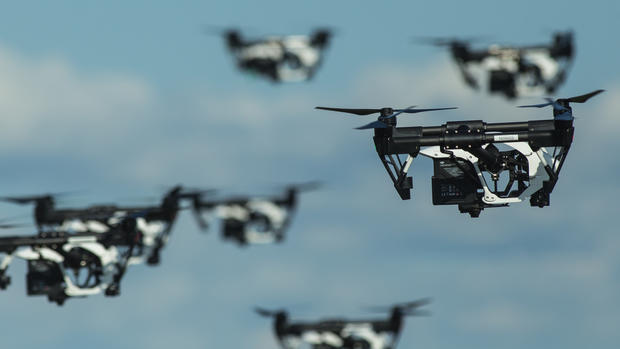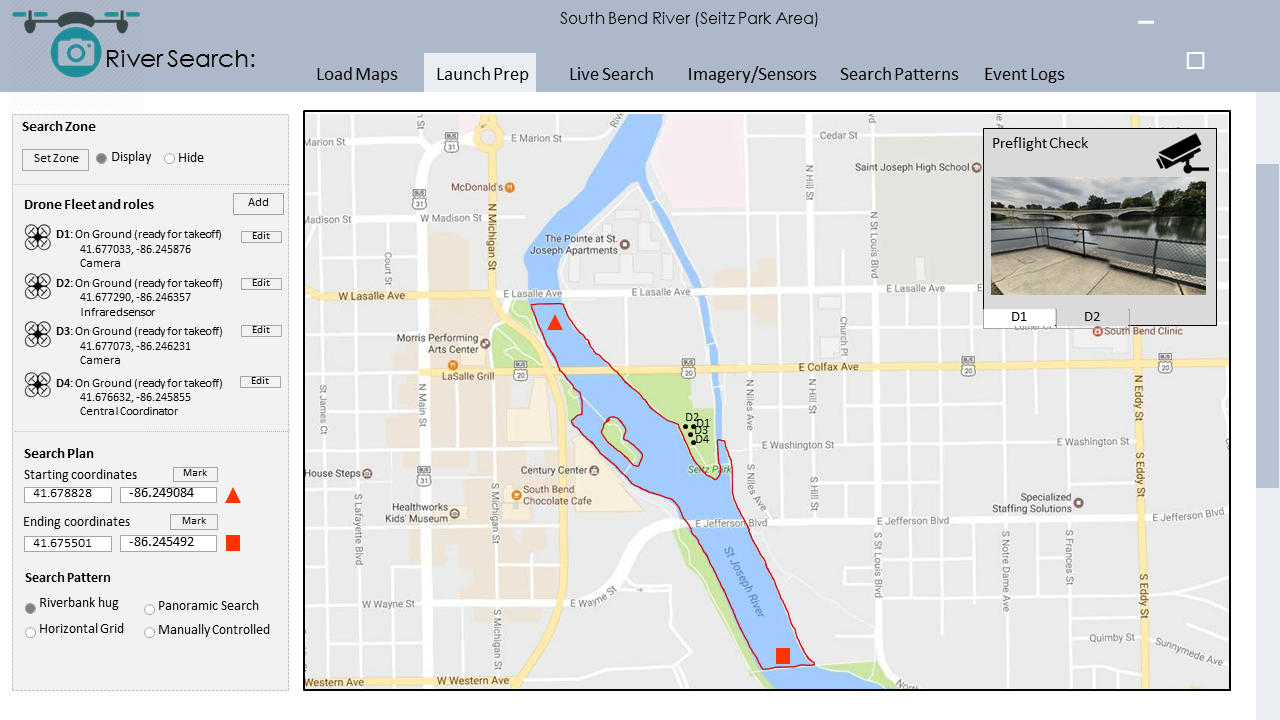What is Dronology?
Dronology is an extensible java/python framework under development at the University of Notre Dame, for coordinating the flight of virtual and/or physical drones. More importantly, it is designed to provide a case-environment for researchers engaged in Requirements Engineering research. Watch this space for further information.
How does Dronology support Requirements Engineering Research?
 Many critical challenges facing cyber-physical systems
today can be categorized as Requirements
Engineering problems. Systems must evolve safely over multiple design-time releases and
have the ability to preserve and optimize their operations at runtime despite uncertainty, resource
variability, changing environmental needs, unanticipated faults, and malicious attacks.
Software and System requirements play a non-trivial role in attaining these goals and as a result
researchers are tackling diverse problems related to goal modeling, requirements completeness,
runtime requirements adaptation, managing requirements uncertainty, design-time evolution
of requirements, environmental assumptions, safety assurance cases, and security and privacy
requirements, to name a few. However, Requirements Engineering research cannot be conducted
in a vacuum. To be effective, it must be driven by case studies of real-life systems and problem
domains. Data from these case studies can be used to illustrate problem scenarios, motivate new and
innovative ideas, explore alternate solutions, and support empirical investigations. For example,
researchers investigating runtime adaptation need case projects that include sufficiently detailed
requirements specifications from which to build goal-models with links to source-code features; while
researchers investigating evolution of safety-cases need project data that includes requirements,
source code, and artifacts of safety analysis. The Dronology Project aims to provide this environment.
Many critical challenges facing cyber-physical systems
today can be categorized as Requirements
Engineering problems. Systems must evolve safely over multiple design-time releases and
have the ability to preserve and optimize their operations at runtime despite uncertainty, resource
variability, changing environmental needs, unanticipated faults, and malicious attacks.
Software and System requirements play a non-trivial role in attaining these goals and as a result
researchers are tackling diverse problems related to goal modeling, requirements completeness,
runtime requirements adaptation, managing requirements uncertainty, design-time evolution
of requirements, environmental assumptions, safety assurance cases, and security and privacy
requirements, to name a few. However, Requirements Engineering research cannot be conducted
in a vacuum. To be effective, it must be driven by case studies of real-life systems and problem
domains. Data from these case studies can be used to illustrate problem scenarios, motivate new and
innovative ideas, explore alternate solutions, and support empirical investigations. For example,
researchers investigating runtime adaptation need case projects that include sufficiently detailed
requirements specifications from which to build goal-models with links to source-code features; while
researchers investigating evolution of safety-cases need project data that includes requirements,
source code, and artifacts of safety analysis. The Dronology Project aims to provide this environment.
Application Scenario
 One application scenario with our physical fleet of UAVs is to
conduct coordinated search and rescue on a river. Other application scenarios include virtual simulations.
One application scenario with our physical fleet of UAVs is to
conduct coordinated search and rescue on a river. Other application scenarios include virtual simulations.
Current Researchers
- Jane Cleland-Huang, SAREC Director, Professor
- Michael Vierhauser, Post-Doctoral Researcher (and Project Manager)